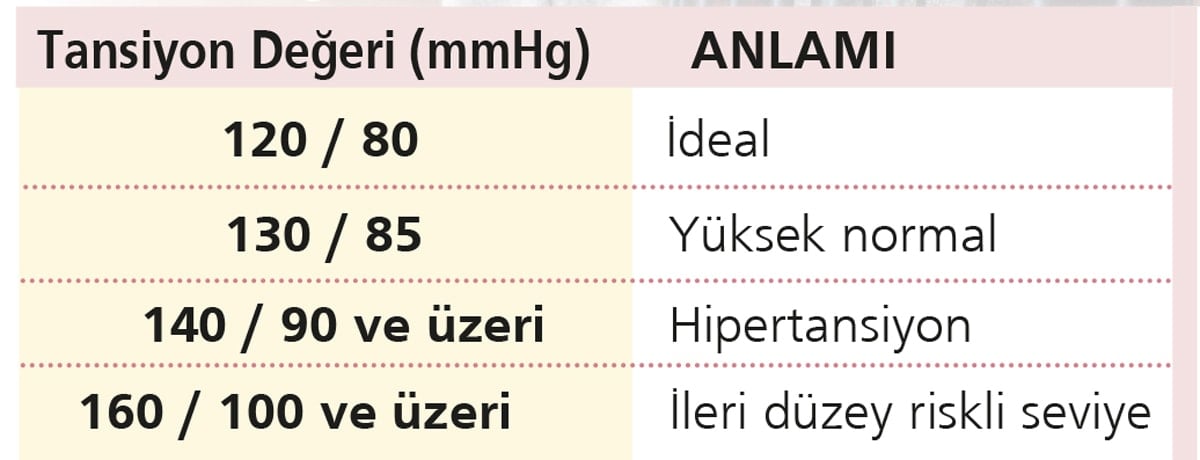The silent killer! Why is blood pressure so dangerous?

Hypertension is the increase in intravascular pressure above normal.
This pressure wears down the vessel walls, hardens them and facilitates the formation of plaque on the inner surface.
This process primarily affects the heart, but also the kidneys, brain, and eyes. Uncontrolled blood pressure enlarges the heart muscle, causes kidney failure, ruptures cerebral vessels, and blinds the optic nerves.
(American Heart Association, 2024)
It doesn't show any symptoms but it eats the organs.Hypertension often doesn't even cause headaches. That's why it's called the "silent killer."
A person may feel well, but their organs may be slowly failing from the inside.
The heart muscle thickens, the diameter of blood vessels narrows, and kidney filters are damaged. High blood pressure is found in 80% of stroke survivors.
(Cleveland Clinic, Hypertension Overview 2023)
How often should you measure your blood pressure?After age 50, measuring blood pressure should become as routine as brushing your teeth. Two days a week, morning and evening, is ideal. If you are in a risk group (obesity, diabetes, smoking, genetic predisposition), daily monitoring is recommended.
For correct measurement:
- Wait 5 minutes after sitting .
- The cuff should be worn on the bare arm , at heart level.
- Measure without talking or crossing your legs.
(Ministry of Health Chronic Disease Surveillance Report, 2024)
5 effective ways to lower blood pressure1 - Reduce salt: Do not exceed 1 teaspoon per day
2 - Lose weight: Every 5 kilos provides a decrease of 4 mmHg
3 - Walk: 5 days a week, 30 minutes brisk
4 - No smoking , alcohol is limited
5 - Manage stress: Breathing exercises, music, nature
These five steps may eliminate the need for medication. However, it's important not to shy away from medication when necessary.
(American Heart Association, 2024)
What do blood pressure numbers mean?
- Measure your blood pressure in the morning on an empty stomach and in the evening 2 hours after dinner.
- The average of one week's measurements gives the most reliable value.
- Make sure that your blood pressure monitor is a medical model that works with an adapter, not batteries.
The list of those who said “Nothing will happen to me” is longOne in three adults in Türkiye has hypertension, but half remain undiagnosed. More than half of those diagnosed take their medications irregularly. Those who say, "My blood pressure was fine today," but skip their medication, often realize they're having a stroke or crisis by the time it's too late.
Most of those who had a stroke had blood pressure but did not measure it regularly.
(TurkStat, Chronic Disease Data 2024)
Is blood pressure medication lifelong?One of the most common fears is, “I started taking medication, I can’t stop.”
But this fear is unfounded. Well-managed blood pressure prevents strokes and seizures. Lifestyle changes can lower the medication dose, or even eliminate it. But only a doctor can make this decision.
Skipping medication just because you're fine today will make all your efforts go to waste. (Cleveland Clinic, 2023)
Why is nighttime blood pressure more dangerous?Blood pressure is expected to drop during sleep. This gives the heart and vascular system a chance to rest.
However, in some people, blood pressure remains high throughout the night; this is called "non-dipper" hypertension.
This situation increases the risk of heart attack and stroke in the morning by 2–3 times.
High blood pressure at night can manifest itself through symptoms such as snoring, sleep apnea, frequent nighttime bathroom breaks, and waking up with a headache. A 24-hour blood pressure monitoring (Holster) is recommended for these patients.
(European Society of Hypertension Guidelines, 2023) The vascular system that does not rest at night gets tired more quickly during the day.
A body in which the heart is “forced to work” even at night begins to quietly deplete in the morning.
TOMORROW:- HDL, LDL, triglycerides! Which one is friend, which one is foe?
- Are the days of “Eggs are forbidden!” behind us?
Cholesterol-lowering drugs: When are they necessary?
- How do values change with proper nutrition?
SÖZCÜ





